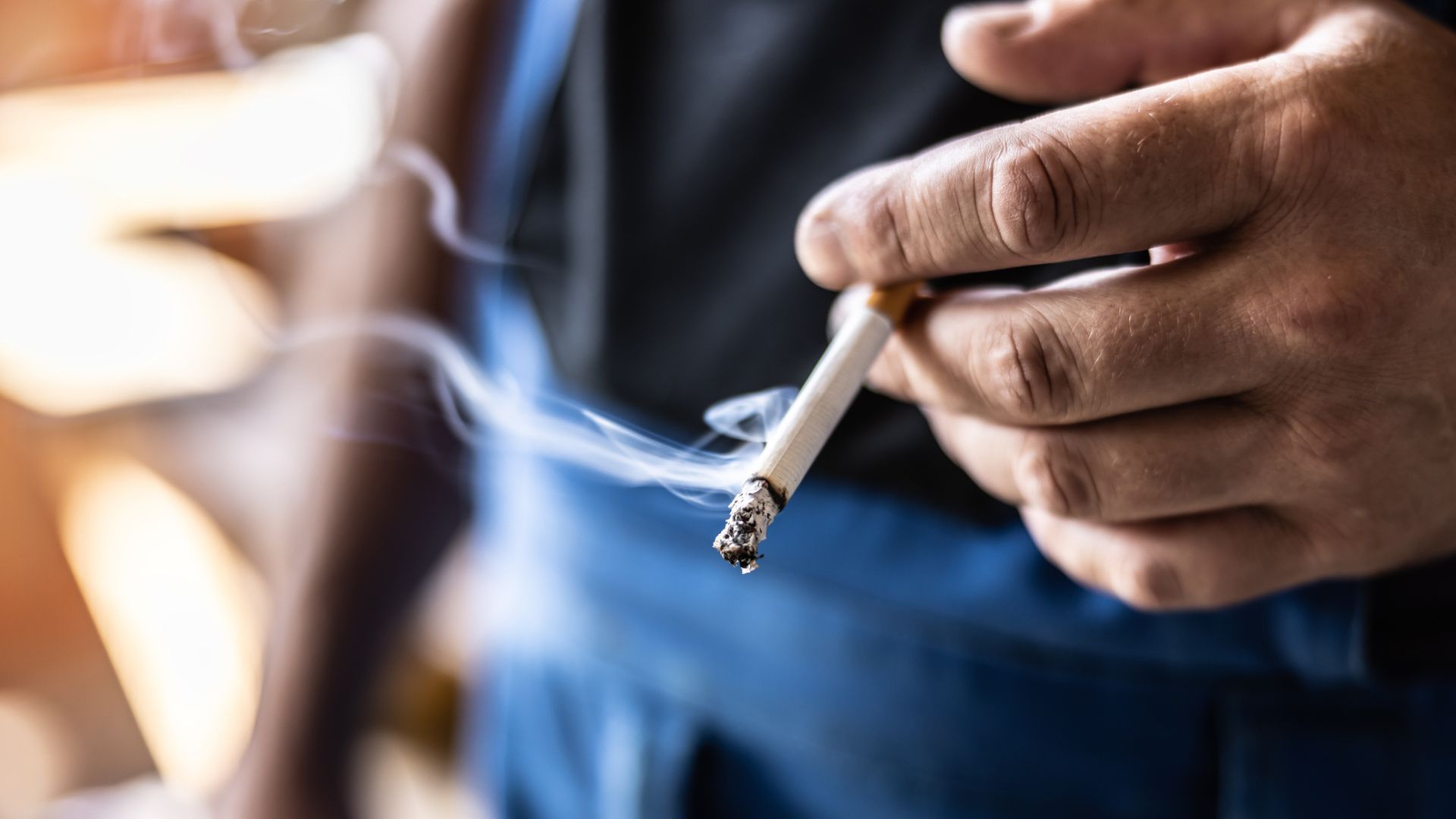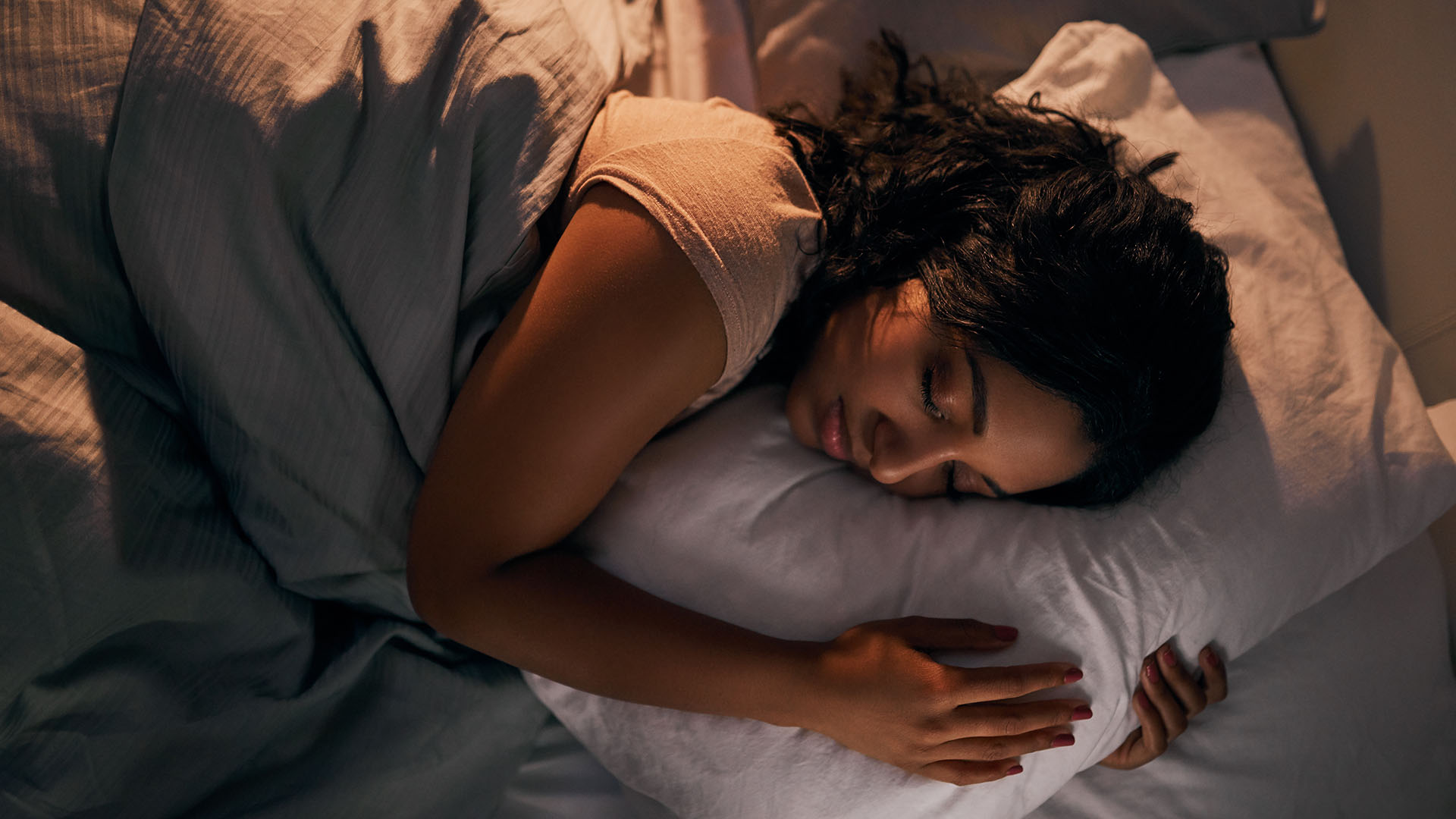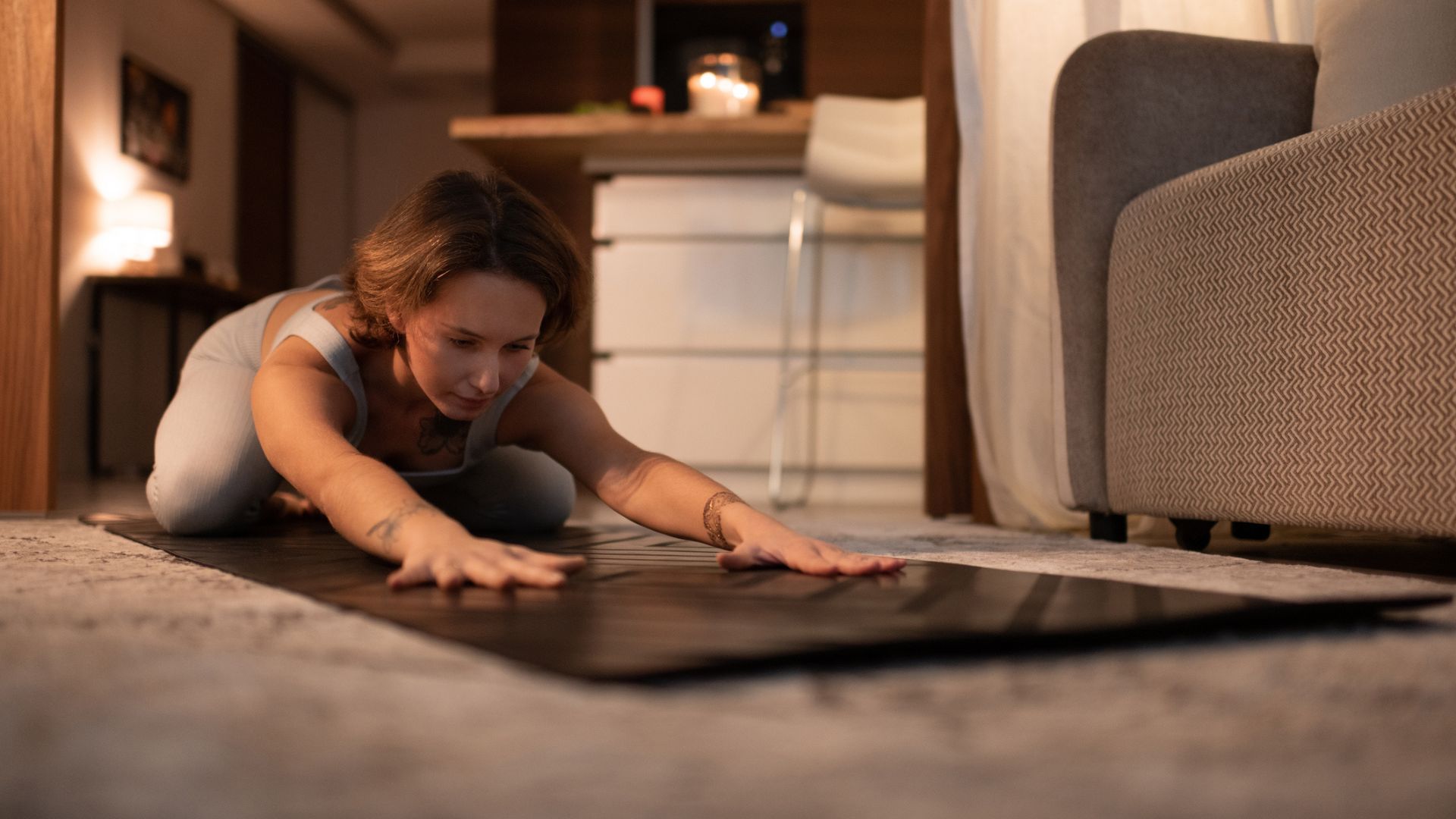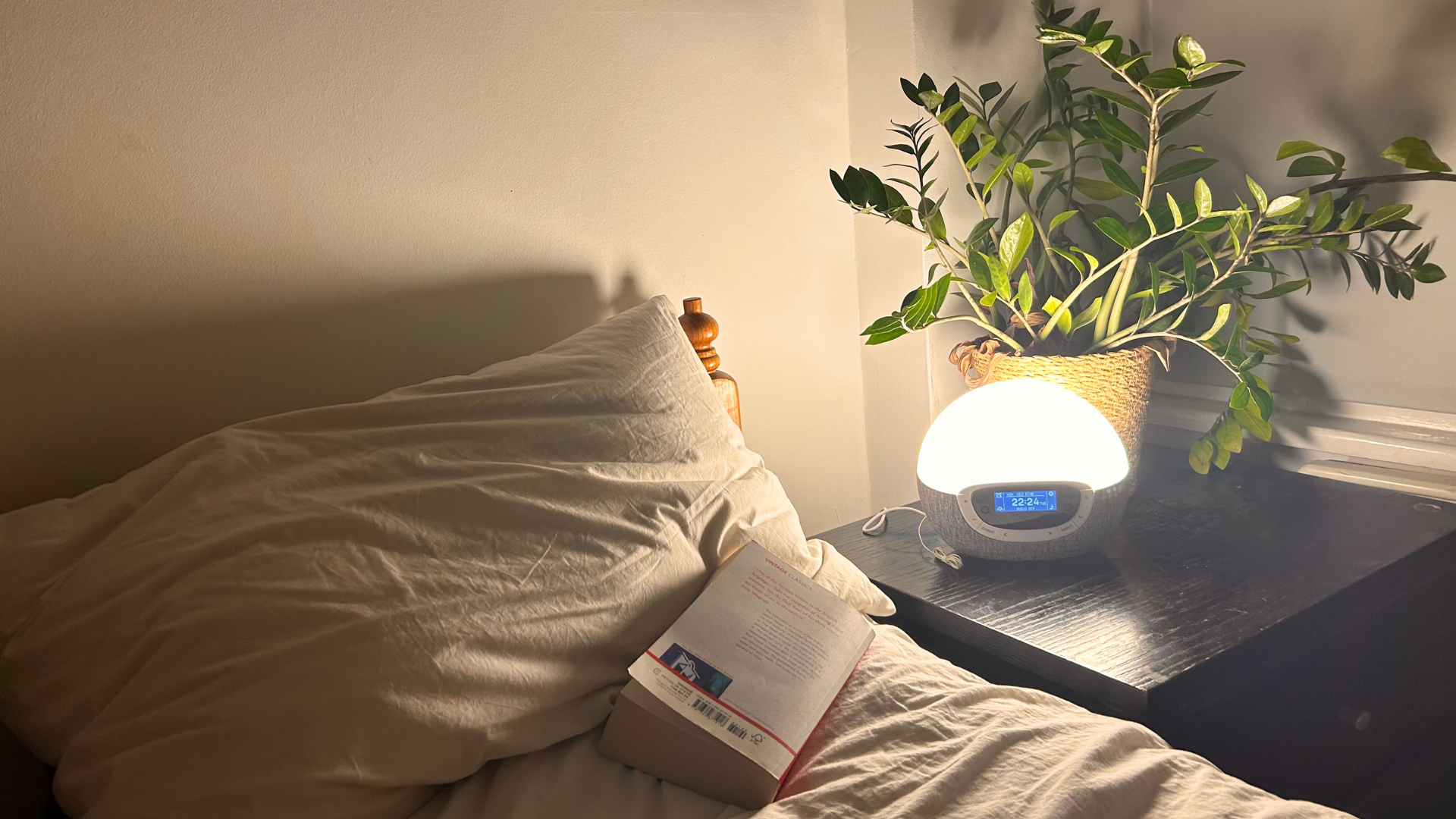
There are a thousand reasons to quit smoking, and if it's your New Year's resolution, you're on your way to better health. And also better sleep. Nicotine creates a state of alertness in your body meaning when all you want to do is wind down and rest, your brain stays active. This can lead to ongoing issues with your sleep including finding it harder to drift off, frequently waking during the night and experiencing issues with getting back to sleep.
Ultimately, this can result in sleep deprivation, fatigue and other ongoing health issues. Yet, when you stop smoking, your sleep can start to improve in as little as a week. When you continue not to smoke for a month, you’ll start to experience more beneficial changes to your sleep. And after one year, experts suggest the quality and duration of your sleep will return to a similar level as that of a non-smoker.
With the help of sleep expert, Lisa Artis, we're exploring what you can expect from your sleep when you quit smoking, as well as some top tips for getting good rest when you're withdrawing from nicotine to help you kick the habit for good in the New Year.
How does smoking affect sleep?
To understand how quitting smoking will benefit your sleep, you need to first know how smoking affects our sleep in the first place. Imagine having an energy drink just as you’re getting into bed and you won’t be surprised to find the stimulant effect hampers your ability to get a good night’s rest. That’s also what happens when you smoke as nicotine similarly stimulates your system, making it harder to unwind when all you want to do is sleep.
Smokers regularly experience sleep issues including difficulty falling asleep and staying asleep through the night. Lisa Artis, a sleep expert and chief executive of The Sleep Charity, tells us more: “Smoking and nicotine addiction can significantly disrupt your sleep,” she explains. “Nicotine is a stimulant that interferes with the body’s ability to relax, making it harder to fall asleep. It can also cause fragmented sleep by waking you up during the night, reducing overall sleep quality.

“Smokers often also experience fewer hours of restorative sleep compared to non-smokers,” she adds. Regularly not getting enough sleep can really take a toll on your health. Sleep deprivation can suppress your immune system and make you more prone to illness. You may also find it takes you longer to recover from each period of ill health.
Not getting enough sleep can also impact on your mental health and make you more prone to experiencing symptoms of anxiety and depression. It can also affect you cognitively and make maintaining concentration and focus much harder. Daytime sleepiness and feeling lethargic all the time are also common symptoms of ongoing poor quality sleep.
“Longer-term, sleep deprivation is also linked to increased risks of chronic conditions such as heart disease, diabetes and obesity,” adds Artis.
How quitting smoking benefits our sleep
When you choose to quit smoking, you’ll quickly start to experience positive benefits to how well you sleep. But it might be difficult to start with, particularly as you go through the initial stages of the nicotine withdrawal process. Here’s what to expect if you persist with quitting smoking.
After one week
In just seven days, your body will already have started to positively respond to having less nicotine in your system. Your general health will initially be starting to improve, too.
“Quitting smoking can have profound benefits for your sleep. One week after quitting, you may notice that falling asleep becomes easier as nicotine withdrawals stabilise,” Artis explains. Without a stimulant in your system, you’re likely find it easier to stay asleep and sleep through the night.

After one month
“By the end of the first month, your sleep cycles start to regulate and this results in deeper and more restorative sleep,” explains Artis. Four weeks on and you’ll now be experiencing benefits to your health as well as your sleep at this stage.
Getting quality sleep can help you feel more focused, alert and generally more energetic, as well as naturally sleepy in the evenings as your body clock starts to function properly. You may also find you now make healthier diet choices and want to be more active, as getting quality sleep helps impulse control and appetite regulation.
After one year
Your body and mind will be firing on all cylinders at this stage and smoking will hopefully be viewed as an old habit you no longer miss after a year of reaping the health and wellbeing benefits.
In terms of positive sleep changes to expect after 12 months, Artis says “If you continue to abstain from smoking for a year, your sleep quality could align with that of a non-smoker, leaving you feeling more refreshed and energetic during the day,” she explains.

How to get a good sleep when you’re quitting smoking
As nicotine gradually withdraws from your body, it can play havoc with your ability to sleep well. Here are our top tips for coping with the initial sleep disturbances of nicotine withdrawal.
Avoid caffeine and alcohol
While you’re in the early days of stopping smoking and withdrawing from nicotine, Artis advises avoiding caffeine and alcohol. That’s because these can have a further detrimental effect on how well you sleep as Artis explains.
“These substances can actually exacerbate smoking and nicotine withdrawal symptoms and can disrupt your sleep cycle.”
Create a relaxing bedtime routine
Before going to bed, Artis recommends engaging in calming activities such as reading or listening to music as these will signal to your body that it’s time to wind down. A nighttime routine can also help calm the mind and body if you’re experiencing cravings or withdrawal symptoms.
Avoid screens for at least half an hour before bed to avoid becoming too stimulated and try a hot bath or shower. Moving from a warm bathroom to a cool bedroom will drop your core body temperature, which is a signal to our bodies that it’s time for sleep, making it easier to drift off.

Try practising a relaxation technique
From deep breathing techniques such as box breathing to meditation or progressive muscle relaxation, Artis advises these can be beneficial as they help to ease stress and reduce nicotine cravings at bedtime.
Some gentle stretches before bed, like yoga, can also help relax the mind and body, making it easier to switch off in the evenings.
Make your bedroom a sleep haven
Ensuring your bedroom is cool, dark, quiet and free from blue light distractions can help to create a haven where your bed is reserved for sleep. “This can help to create a strong association between your sleep environment and rest,” adds Artis.
Avoid working in your bedroom so you only see it as a place of rest. You should also invest in the best mattress for your sleep style, and the best pillow for your sleeping position so you can rest comfortably through the night without tossing and turning.

Keep a regular sleep/wake cycle
Going to bed and waking up at the same time every day, even on weekends, can help to stabilise your circadian rhythm. This can help your mind and body to better recognise when you’re ready to wind down for sleep and make it easier to drift off.
It’s important to stick to this sleep schedule even if you haven’t slept well. In the long run, this will help regulate your energy levels better than a lie in.







